 When I listened to a group of Yale students speak about gender with Katie Couric in her documentary, “The Gender Revolution,” it struck me that two different meanings of the trans- prefix are getting confounded. This prefix can mean “across” or “beyond.” In the case of transgender individuals, some have assumed a gender role that differs from the one they were assigned at birth. So they have crossed gender lines in finding their personal identity. Others are gender neutral, meaning that they do not want to be restricted to any gender role. These individuals are seeking to go beyond gender categories altogether. In order to distinguish between the two, I’ve decided to use trans for “across” and TRANS for “beyond.” Now that the terminology is clear, here is my point: Free spirits are TRANS! These individuals are transcending the old categories and definitions. It is not just about gender, but also religion, politics, nationality, career, residence, and race. For free spirits, what matters is the experience of genuineness—of being fully alive!—which cannot be confined or contained. In Deep Creativity, I say that creativity is not just about thinking outside the box but living outside it. Not by coincidence, this is also how free spirits have chosen to live: as much outside the box as possible. And what is “the box”? It is any limitation on our identity and thinking imposed by ourselves, other people, or some combination of the two. There are those who seek simplicity and certainty in making sense of their world. They are, in the language of psychology, ambiguity intolerant. For these individuals, there is a certain level of comfort in knowing if someone is male or female, Catholic or Protestant, Democrat or Republican. But for free spirits, these categories can seem limiting. Increasing numbers of people are rejecting the conventional boxes. They are doing this in many ways: by choosing to be “spiritual but not religious;” registering as independent or third-party voters; being citizens of the world rather than pledging their allegiance to a single country; embracing entrepreneurship over conventional jobs; living “cage-free” as opposed to renting or owning a home; identifying themselves and their families as multiracial; and embracing gender neutrality. The trend is so widespread that it constitutes a free-spirit movement. The result is a growing population that is TRANS-religious, TRANS-political, TRANS-national, TRANS-racial, and TRANS-gendered, among other things. This is an exciting time to be alive because the old categories are falling away, which means that people can define themselves in entirely new ways—or not at all! If you are reading this far, you are probably part of this trend. So, how are you rejecting the conventional definitions and categories? In what ways are you TRANS? And where do you see this trend leading?
0 Comments
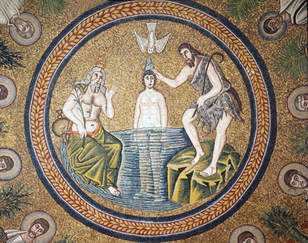 For free spirits throughout the world, a powerful new sacrament has emerged. This simple ritual carries all the power and significance conveyed by baptism. When John the Baptist introduced Jesus to baptism two thousand years ago, this type of ritual washing was already in practice among Jews, Hindus, Egyptians, and other groups. The purpose of baptism was seen as purification. It has come to signify an initiation into spiritual life through the removal of impurities. Today, free spirits are practicing Repose, which involves lying on one’s back with arms extended perpendicular to the torso, palms up, legs open, and jaw relaxed. It is done three times a day for seven minutes. Repose was developed as a relaxation technique with physical and mental health benefits, but those who have been practicing it on a daily basis understand it to be much more than that. Like baptism, it serves as a type of spiritual initiation. For ancient peoples, initiation involved the removal of impurities. But what was the nature of these impurities and why did they need removing? In the Judeo-Christian tradition, Adam and Eve fell from grace after eating fruit from the “tree of knowledge of good and evil.” Impurity begins, then, with the ability to distinguish between good and evil, or right and wrong. Through this ability, human beings gain free will, which is the ability to choose one side or the other. When acting in ways that they see as wrong, evil, or sinful, people identify themselves impure. 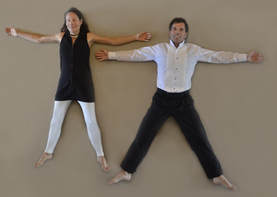 Free spirits have always dared to experience the world in unconventional ways, recognizing that distinctions such as right and wrong can be arbitrary and limiting. “Out beyond ideas of wrong-doing and right-doing, there is a field,” wrote Rumi. “I will meet you there.” In other words, we get a fuller picture of who we are and what we can be when we look beyond the obvious categories and distinctions. Rather than focusing on removing our impurities, we can seek ways to become more complete. Each of us has a sense that there is much more to who we are than we have yet to discover. Within our own hearts, we may feel incomplete. The film Jerry Maguire made this line famous: “You complete me.” Implied is the idea that there is something or someone out there which can make us feel complete. So, let me ask you this simple question: What completes you? Perhaps it is a specific person, group, place, ideal or value. For free spirits, it would have to be the experience of this moment. In the here and now, there is much more for us to be, feel, sense and intuit. We become more complete by opening ourselves to the present moment, in all its glory. When we increase our receptivity, we feel things more deeply and intensely, which in turn lets us be more fully ourselves. And nothing enhances our receptivity like the ritual of Repose (for more on this, see Repose: The Potent Pause). Receptivity means acceptance of the other. After all, none of us needs to receive something that we already possess. We can only be receptive to something that has heretofore existed outside of ourselves. When we feel a strong connection to something, it becomes a part of us. Suddenly, our boundaries are expanded, and we become connected to the people, activities, and things that inspire passion in us. This passion—the experience of being fully alive!—gives rise to everything that enriches us: our creativity, happiness, well-being, and spirituality. For those of us who are free spirits, Repose is a powerful tool. It opens the doors to a life filled with passion and inspiration, love and joy, bliss and ecstasy. Do you find it hard to believe that something so simple can have such a profound impact on our lives? If so, I say: Perfect! Don’t take my word for it. Try Repose for yourself—three times a day for a month. Then, let me know what you find. You have little to lose and everything to gain. I am eager to hear from you! 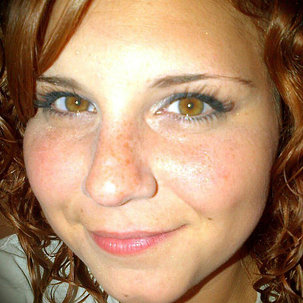 For me, what happened in Charlottesville last weekend was sickening. I mean that literally. The anger I felt was so overwhelming that it made me physically ill. And I suspect that I was not alone. Charlottesville aroused the passions of an entire nation. But we learned that not all passions are created equal. Strong feelings of anger like what I felt are debilitating. Hatred is even more so. The haters who marched on Charlottesville may not seem all that debilitated. After all, they got the attention of an entire nation. But what power do they really have? Clubs and torches are the last resort of the desperate. The only power they have is to incite outrage and violence in the rest of us. “If you’re not outraged, you’re not paying attention.” This was the last Facebook post of Heather Heyer, who was killed when a car drove into a crowd of peaceful protesters on Saturday. Although I never had the pleasure to meet Heather, I know that her passions ran much deeper than mere outrage. Her friends, family and co-workers described her as someone who was driven by compassion, a sense of fairness, and love. Heather’s father, Mark, described her as “a strong woman that had passionate opinions about the equality of everyone.” Her friend, Marissa Blair, added, "If you knew Heather, you would know that she loves everyone and all she wants is equality for everyone, no matter who you love, no matter what color you are." I see Heather not just as an American hero but also as a free spirit. As such, she was not passionate about being white; she was passionate about being free. Rather than identifying with one particular group, Heather identified with all people, especially those that were being treated unfairly and needed her help. And according to her father, Heather had the courage of her convictions. “She had a stubborn backbone that if she thought she was right, she would stand there and defy you.” But, he added, “she would want to do it peacefully.” Free spirits are passionate about the experience of being fully alive, and that experience is inherently transcendent. We are most fully alive when we see beyond our individual and group differences and become most fully connected: to other people, to the natural world, and to the perfection inherent in every moment. Emotions like compassion, forgiveness, kindness, and love expand us, draw us outside of the narrow confines of our individual identity. And when we do so, we have no enemies in the world—although undoubtedly there are adversaries. In this case, the adversaries are those who are impassioned by hatred and anger. We are playing a game in which love trumps hate and the object is total inclusivity. When we are able to recognize everyone and everything as being part of the same team, our team always wins. In other words, everyone wins. Rather than the supremacy of a single group, we strive for the supremacy of being, which is something we all share. As free spirits, we possess the qualities that make victory inevitable, including our creativity, playfulness, and imagination. All of these qualities were on display when Twitter users like “Yes, You’re Racist” revealed the identities of individuals who took part in last weekend’s hate parade. Some of these men were fired from their jobs, disowned by their families, and criticized by their peers. This is a truly free-spirited way to overcome hatred; it is playful, nonviolent, and extremely resourceful. Imagine all the other ways that future hate parades can be rendered impotent. For instance, what about an “I Won’t Date Men Who Hate” campaign? Imagine what would happen if positive attention and affection were with withheld from those who take part in these parades. I also love the idea of holding celebrations of diversity in the same cities where these marches are taking place. Thousands or perhaps millions of people could converge for world music concerts, food festivals, or other celebratory gatherings. Instead of drawing more attention to public displays of hatred through counter protests and acts of aggression, we come together to celebrate the very things they detest: cultural differences and the power to find common ground regardless of race, ethnicity, religion, ideology, or sexual orientation. A Free Spirit Movement is taking shape. We can create alternatives to hatred and violence, and we can do it in ways that are fun, liberating, and—most importantly—unifying. Can you think of some other ways to accomplish this? I have no doubt that you can. We just have to let our imaginations run wild. As free spirits, that type of thing just comes naturally! 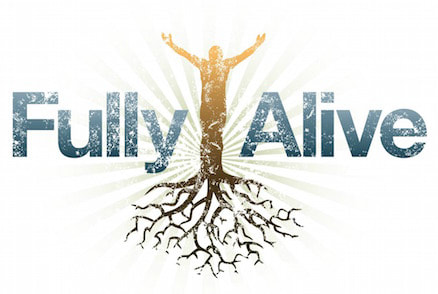 What makes a free spirit? When you take the FREE SPIRIT QUIZ, you will know the answer: For free spirits, the most important thing in life is the experience of being fully alive (EBFA). We free spirits value this experience in ourselves, in others, and in our communities. But what exactly is that experience? I would describe an EBFA as a peak experience in which time stands still, we lose ourselves in the moment, all distractions disappear, and we feel strong positive emotions. The EBFA has three components:
I will have much more to say about this awakening in the days and weeks to come. In the meantime, nothing would make me happier than to hear from you. Do you know the experience I am describing? Tell me about an EBFA you have had. What circumstances gave rise to it? What was it like for you? And how did it affect you?  Being and doing. Both are essential parts of human psychology. Somehow, the relationship between the two has fallen out of balance. We are living in a world where doing is valued far more than being. From an early age, each of us is encouraged to accomplish and achieve. Our society tends to define success far more in terms of power and wealth than love and joy. Even though most of us claim, when surveyed by researchers, that family and relationships are the highest priority in our lives, our behavior reveals otherwise. We tend to pursue our careers and businesses, often at the expense of our personal lives. The language we use reflects this priority. Few labels are more damaging than “lazy” or “slacker.” We refer to our leisure and recreational activities as “fun,” a word that originates in the Middle English fon, meaning “fool.” This is not just a bias of the English language. The French equivalent, “amusement,” comes from the word, muser, meaning “to stare stupidly.” And in Spanish, fun is “divertido,” which comes from the same root as the English word divert. To have fun, then, is to turn away from forward progress. Taking time away from our busy lives to enjoy the moment is considered unwise and unproductive. The message is simple: Do more. Work harder. Never let up. We are living with a work ethic that permeates our culture so thoroughly that even the slightest pause is seen as irresponsible. A dear friend of mine tried to challenge this work ethic. In his 20’s and 30’s, he used to say that his career goal was “not to let my work cut into my leisure time.” By age 45, he was running a business and working 12-hour days. Three research findings came out this week suggesting that this emphasis on doing over being does not seem to be working. We learned that: 1) the Earth’s temperature is expected to rise two degrees Celsius by the end of the century, making the planet virtually uninhabitable; 2) men’s sperm count has dropped by 59% in the past 40 years; and 3) chronic fatigue is a function of inflammation. All of these findings point to the damaging effects of relentless human activity. As a society, we are unwilling to disengage from a fast-paced lifestyle that is destroying the Earth, bringing our species to the verge of extinction, and creating runaway inflammation in our bodies through environmental toxicity, psychological stress, an unhealthy diet, and sleep deprivation. There is a simple solution. We can follow the lead of those free spirits who value the experience of being fully alive. Sometimes, we need to take a pause to immerse ourselves in the moment, take it all in, relax and enjoy. Thinking more and working harder have their place, but they are not always the answer. A shift is beginning to happen, not by choice but by necessity. We are at the outset of a “being” revolution. People are starting to disengage from a society that is driving itself to death through an overemphasis on doing more as opposed to being more. According to a report in Forbes magazine, the millennial generation seems to be choosing experiences over possessions or career status. We are seeing more young people dropping out of school, rejecting conventional jobs, and becoming “cage-free” rather than taking on the responsibilities of home ownership. This movement needs a new vision of human nature—what Abraham Maslow called a “psychology of being.” I am honored and thrilled to be exploring this vision with you. And I am eager to hear your thoughts. What does the “being” revolution mean to you? How is it impacting your life? Where do we go from here? Please share your impressions in the Comments section of this blog. Or just take some time to appreciate the beauty and wonder of this precious moment! |
I want to hear from you! Please share your questions and comments. And sign up for my newsletter, where I will pass along the insights, ideas, and inspiration that come my way.
Contact me:Archives
November 2023
|
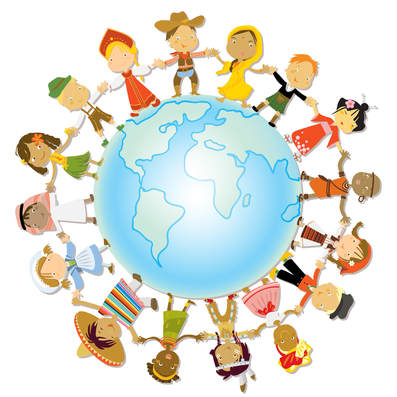
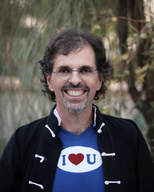
 RSS Feed
RSS Feed
